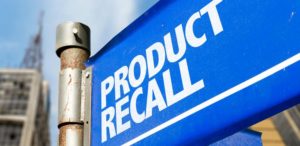
Imagine that you place an order for a hot new product. When it arrives at your door, you tear open the box only to find that the thing you spent your hard-earned money on is damaged and not working. If you are like most people, this is a situation that you have dealt with before. How do you respond? You call up the company and demand a replacement or refund. You are not going to accept a damaged or defective product.
You should not keep an unsafe product either. You should always respond to a product recall notice. If a product is being recalled, that means that it is defective and potentially unsafe. The manufacturer should repair or replace it at no cost. A new study, however, indicates that millennials are lagging in their responsiveness to recall notices.
According to a survey conducted by Stericycle Expert Solutions, Americans between the ages of 18 and 34 are far less likely to take product recall notices seriously than older consumers. It is important to respond to product recall notices.
The Results: Millennials Are Three Times More Likely to Ignore Product Recall Notices
The survey of 1,104 Americans of varying ages groups and backgrounds was designed to assess which factors drive response rates to product recall notices. The responses suggest that age is one of the single most important factors in determining whether a person will take action after receiving a recall notice. Specifically, the study found that:
- 18 percent of millennials ignore recall notices entirely; this is compared to just 6 percent of baby boomers; and
- 36 percent of millennials read recall notices, but fail to take any action; this is compared to just 16 percent of baby boomers.
This means that approximately half of millennials are not complying with the product recall notices that they receive. This is alarming. It means that millennials may be putting their safety at risk. When recalled defective products remain in use, they have the potential to cause serious injuries or fatal injuries.
Response Rates Vary for Different Products
 Beyond finding that age affects the response rate to recall notices, the researchers found that consumers respond differently to notices depending on the type of product in question. For example, most consumers take recalls of food or drugs very seriously.
Beyond finding that age affects the response rate to recall notices, the researchers found that consumers respond differently to notices depending on the type of product in question. For example, most consumers take recalls of food or drugs very seriously.
The survey found that:
- 85 percent of consumers stated that they check their refrigerator and cupboard after receiving a recall notice for food products; and
- 82 percent of consumers indicated that they check their medicine cabinet after getting a recall notice for a dangerous drug or a defective pharmaceutical product.
The researchers also found that consumers take recall notices seriously for large appliances and other similar products. Most surprisingly though, all generations, including millennials, fail to take recall notices seriously for consumer electronics. The survey found that millennials were least likely to respond to a recall notice for an electronic product.
Personal Relevance and Recall Notices
The survey found that personal relevance is the key factor that drives the response rate to product recall notices. Nearly 70 percent of consumers decide how to respond to recall notices based on whether they feel that they are personally at risk of harm.
In other words, general risk does not drive action. Most consumers must feel personally at risk to take action. This is both an intuitive and important finding.
The reason that millennials are responding to recall notices at lower rates than other generations may be because they see themselves as less likely to be personally affected by the defective product. As such, manufacturers should strongly consider adjusting the way they make product recalls to ensure that these notices have the proper impact on millennials.
Why You Should Always Respond to a Recall Notice
- The manufacturer owes you something: If a company sold you a defective product, you are entitled to have the product fixed. You deserve a refund or replacement for any product that has been recalled by the manufacturer.
 Your safety might be at risk: The most important reason why you should comply with recall notices is that the health and safety of you and your family may be at risk. Products are recalled for a wide variety of reasons. Many of these recalls are very serious. You may have a defective drug that could damage your internal organs, a vehicle with safety features that will not protect you in the event of a crash, or a cell phone charger that might cause a fire. Regardless, you need to take a recall notice seriously to protect your well-being.
Your safety might be at risk: The most important reason why you should comply with recall notices is that the health and safety of you and your family may be at risk. Products are recalled for a wide variety of reasons. Many of these recalls are very serious. You may have a defective drug that could damage your internal organs, a vehicle with safety features that will not protect you in the event of a crash, or a cell phone charger that might cause a fire. Regardless, you need to take a recall notice seriously to protect your well-being.- Recall notices can affect liability: Finally, recall notices have the potential to affect legal liability in defective product injury case. If you receive a notice of a bad product, and you make the choice to disregard the notice and not to comply with the recall, it could be more difficult for you to hold the company liable for your injuries if the product causes harm. You should take action to protect your legal rights.
Contact Our North Carolina Product Liability Attorneys Today
If you or a loved one has been harmed by a defective product, our Raleigh, NC defective product defect attorneys are ready to help. At Hardison & Cochran, we have the skills and experience needed to hold negligent manufacturers liable for products that cause preventable injuries. You and your family deserve full and fair compensation for your injuries.
To request a free, no obligation review of your defective product injury claim, please contact our law firm today. We serve injured victims throughout the state of North Carolina.



